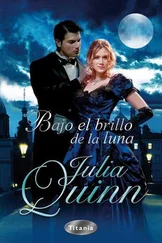Julia Franck - Back to Back
Здесь есть возможность читать онлайн «Julia Franck - Back to Back» весь текст электронной книги совершенно бесплатно (целиком полную версию без сокращений). В некоторых случаях можно слушать аудио, скачать через торрент в формате fb2 и присутствует краткое содержание. Год выпуска: 2013, Издательство: Grove Press, Жанр: Современная проза, на английском языке. Описание произведения, (предисловие) а так же отзывы посетителей доступны на портале библиотеки ЛибКат.
- Название:Back to Back
- Автор:
- Издательство:Grove Press
- Жанр:
- Год:2013
- ISBN:нет данных
- Рейтинг книги:3 / 5. Голосов: 1
-
Избранное:Добавить в избранное
- Отзывы:
-
Ваша оценка:
- 60
- 1
- 2
- 3
- 4
- 5
Back to Back: краткое содержание, описание и аннотация
Предлагаем к чтению аннотацию, описание, краткое содержание или предисловие (зависит от того, что написал сам автор книги «Back to Back»). Если вы не нашли необходимую информацию о книге — напишите в комментариях, мы постараемся отыскать её.
, was an international phenomenon, selling 850,000 copies in Germany alone and being published in thirty-five countries. Her newest work,
echoes the themes of
, telling a moving personal story set against the tragedies of twentieth-century Germany.
Back to Back Heartbreaking and shocking,
is a dark fairytale of East Germany, the story of a single family tragedy that reflects the greater tragedies of totalitarianism.
Back to Back — читать онлайн бесплатно полную книгу (весь текст) целиком
Ниже представлен текст книги, разбитый по страницам. Система сохранения места последней прочитанной страницы, позволяет с удобством читать онлайн бесплатно книгу «Back to Back», без необходимости каждый раз заново искать на чём Вы остановились. Поставьте закладку, и сможете в любой момент перейти на страницу, на которой закончили чтение.
Интервал:
Закладка:
What’s all this about, my pretty? said the redhead, patting his girlfriend on her back in its winter coat. Käthe said how during her Italian year she had noticed how much Michelangelo reduced the size of many male genitals in relation to their real proportions, and that very thing bore witness to the high force of attraction, the revelatory view with which he had depicted the human figure. The power of its shoulders and loins compared to the tiny member. Käthe spoke of the member as if it were an arm or a leg.
So he had a member , reflected Thomas, a member that was part of the body and needed no more precise description? Now he heard Käthe talking about the human race, the male sex, his head was ringing with all the words she used, while the swan-necked girl went on staring at his prick and he feared that, under her gaze, it might grow and grow. No strength in his narrow shoulders and such a sweet little sex, he felt, it was going to be only a little willy, his blood was throbbing, something was echoing, and Thomas feared that his blood might go down to his sex and then up to his cheeks, back to his sex and back to his head.
Only now, apparently, did Käthe realise that Thomas was still standing there naked and useless, unoccupied. She said sharply: Didn’t you hear me? Pick up that broom. And then get dressed; why are you standing around here without anything on?
Thomas picked up the broom that stood in the corner; he used it every evening after they had finished work to sweep the floor. The visitors followed the naked boy and the broom with their eyes, saying nothing, perhaps daunted by Käthe’s imperious tone of voice, perhaps waiting for Thomas to leave the studio at long last so that they could go on with their conversation undisturbed. Thomas had to bend to pick up the dustpan. Käthe and her guests were still silent. He tipped the pieces of stone into the waste bin standing by the door, placed the dustpan on it, stood the broom beside it and straightened up. Tantantaraa! Thomas bowed to his audience and spread his arms submissively. The Upright Man; mentally Thomas could only shake his head, Käthe’s name for the sculpture made him laugh, an angry laughter. He took his clothes and went up the wooden staircase that had no banister rail two steps at a time, and so into the house where it adjoined the studio.
Unlike Ella, Thomas seldom felt hatred. He was not annoyed with Käthe, he was annoyed with himself. What did he expect? Käthe had often told him and Ella not to make selfish claims. Moderation was all. No one had a right to love and protection. Käthe wouldn’t help him to get a place to study. She disliked the elite to which, as a girl of good family, she had once belonged. All that mattered was for people to create art for their own society out of their own strength. Her children were to learn to work like anyone else, that was what she demanded, that was what she expected. Thomas liked her glowing cheeks, but he distrusted the reason for them.
Those who want to change society had better begin with their own children, said Käthe, putting one of her favourite Bulgarian wines down beside the bottles brought by her guests. The guests were sitting round the large table listening to Käthe. Ella put coal on the stove. Thomas laid the table; as directed by Käthe he had warmed up the bean casserole, and she wanted him and Ella to wash the dishes after the meal.
Sit down, Thomas, you two can eat with us, come on, sit down. Once upon a time children ate in the kitchen with the domestic staff, and only French was spoken at their distinguished parents’ table.
The guests looked at Käthe. Why French? The swan-necked girl stretched, her high voice trying hard not to betray her Saxon accent.
That’s how it used to be at our home in a professor’s house. We children ate with the domestic staff in the kitchen, we sat at our parents’ table only on special occasions. That’s what we learned French for. Käthe looked around at her silent audience.
Really? The strange movements of Rüdiger’s mouth made his moustache jump up and down. The two women also let out noises of surprise. Really?
. . and so that we could read French as well, anyone who wants to read Balzac and Molière has to know French, added Käthe, as if that were a better explanation for her visitors. Away with social rank! We don’t want the language we use to show the status of our professions any more, not under socialism. If the son of the chef who speaks in Berlin dialect studies chemistry, and the doctor’s son who speaks High German learns to be a chef, our society will be mixed up in a new order, and then we’ll have done it. Everyone must make a contribution. My father was a professor, I carve stone.
Wiegand nodded appreciatively. What Käthe was saying obviously met with his approval. While Thomas filled Wiegand’s plate with the steaming casserole, he realised what Käthe was getting at. The dialect someone spoke showed only if he came from Berlin or Leipzig.
Käthe solemnly held her glass aloft: The cook toils all day in his large kitchen, the milling-machine operator in the factory, I carve my stones — and now let’s drink to the People’s Own Works, the Leuna and Buna chemicals works! Santé! She held her glass out in all directions, and there was a muted clinking.
Some time ago Thomas had found out that glass sounded best only if the bowl of the glass was free in the air. You had to hold the glass by the stem, but no one here was doing that. And it shouldn’t be filled to the brim. Käthe began eating even before Rüdiger had wished everyone bon appétit. Maybe she thought it more modern not to give herself away by any more French table-talk. Käthe didn’t notice that Ella wasn’t sitting down with them yet, because she was taking the ash bucket out into the yard, and that Thomas was sitting at the other end of the table with an empty plate, because there were not enough beans for everyone. The raised arms of several wax models of the Upright Man in the middle of the long table obscured her view.
She tried a saying in Saxon dialect, and looked expectantly round the circle at the table. But although they came from Saxony, maybe they didn’t know the saying, which depended on the Saxon pronunciation Oogen, Fleesch, Beene for Augen, Fleisch, Beine: eyes, flesh, legs. Thomas said them after her in High German, assuming that that was what she wanted to make her meaning clear.
No, no, said Käthe brusquely, waving his contribution away. It all depends on banishing fascism from the way we think. I meant to say that we’re all human, no matter what dialect or accent we use.
Understood, said Rüdiger. Käthe seemed to like this obedient response, and she went on.
We must affect everyone wherever we can. Everyone has children, and they have friends, and the friends in turn have parents, so we can exert extraordinary influence through our children.
Thomas went into the kitchen to fetch the big bowl of salad. When he got back into the smoking room he thought he would suffocate.
The golden tassels of the velvet cushion on which Käthe was sitting swung about. Thomas looked at her Biedermeier chair and the Persian rug. In this bourgeois living room her idea of society sounded not just adventurous but fantastic. Her lecture had moved away from Michelangelo now, words like Gommern and People’s Own Works were flying through the air. They were also talking about the extraction of mineral oil and various sites of production. The workers and their rights, a revolution from within, Buna and Leuna sounded like fairy-tale words, the honour of the worker and his right to art, zarroolafrutzi kuttodamnutz, thought Thomas, taking refuge again in imaginary words, fleckibutz schnuttikutz, he must not only enjoy the benefits of art but be depicted in art himself, workers must be shown engaged in heavy labour, at the conveyor belt, in the lab, with their hands on the pistons! The mere word worker obviously moved and excited Käthe. Her eyes shone when she talked about the workers. While Thomas listened to Käthe he saw her firing up, so to speak, and recognised the unconcealed joy with which she devoted herself to the assumed influence and heroic power of her own existence. She told no story in which she did not feature as the heroine: who had the ideas for the worker, who spoke up for them, whose mouth was opened? Open your mouths, she told Thomas and Ella, a precept that came out as if propelled from a mechanism as soon as one of them appeared at the table to take the guests’ crockery into the kitchen. Then she brought the palm of her hand down on the table, uttering a high-pitched squeal, and she laughed, because she could see how easily she was succeeding in making her guests enthusiastic, impressing them, carrying them away with her. The guests nodded, yes, of course, everyone wanted to help the workers to get their due. Glasses were filled and clinked. The muted sound made Thomas uneasy. Young people, said Käthe reproachfully, well within earshot of Ella and Thomas, young people must take responsibility for themselves and learn to speak up for others, or nothing will come of our new society. Nothing at all. There are plenty of people around here already who are moral cowards and hangers-on. Not to mention a few wimps.
Читать дальшеИнтервал:
Закладка:
Похожие книги на «Back to Back»
Представляем Вашему вниманию похожие книги на «Back to Back» списком для выбора. Мы отобрали схожую по названию и смыслу литературу в надежде предоставить читателям больше вариантов отыскать новые, интересные, ещё непрочитанные произведения.
Обсуждение, отзывы о книге «Back to Back» и просто собственные мнения читателей. Оставьте ваши комментарии, напишите, что Вы думаете о произведении, его смысле или главных героях. Укажите что конкретно понравилось, а что нет, и почему Вы так считаете.












